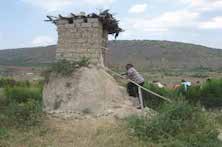Jeremy Scott Guest

A General Framework for Analyzing the Sustainability of Resource Recovery from Bodily Waste
Professor Guest’s research project will advance the sustainability of sanitation in low-income communities by re-envisioning bodily waste (urine and feces) as a renewable resource from which nutrients (for agriculture) and energy can be recovered and reused locally. The objectives are 1) to characterize the potential for bodily waste to be a renewable resource for food production, energy production, and income generation in refugee settlements and 2) to develop an analytical framework to explicitly identify and navigate trade-offs in social-ecological systems (SESs) that leverage individually derived renewable resources (i.e., bodily waste).
The research objectives will be accomplished through the quantification of resource flows (fuel, food, fertilizers) around a refugee settlement in Uganda, the development of a model to explore the complex social-ecological system in the Settlement, and participatory workshops with stakeholders. The outcomes of this work will include a sanitation decision-making tool for the United Nations High Commissioner for Refugees (UNHCR) as well as an improved understanding of sanitation and food-energy systems by stakeholders in the refugee settlement. More fundamentally, the research will explore a novel conceptual framework for the management of resource systems in which human beings are a source (or, more accurately, part of a cycle) of renewable resource flows. This novel framework will represent a major shift in thinking related to coupled human-natural systems, and will provide an important tool for the pursuit of sustainable development to meet the needs of a growing global population in the 21st century.
